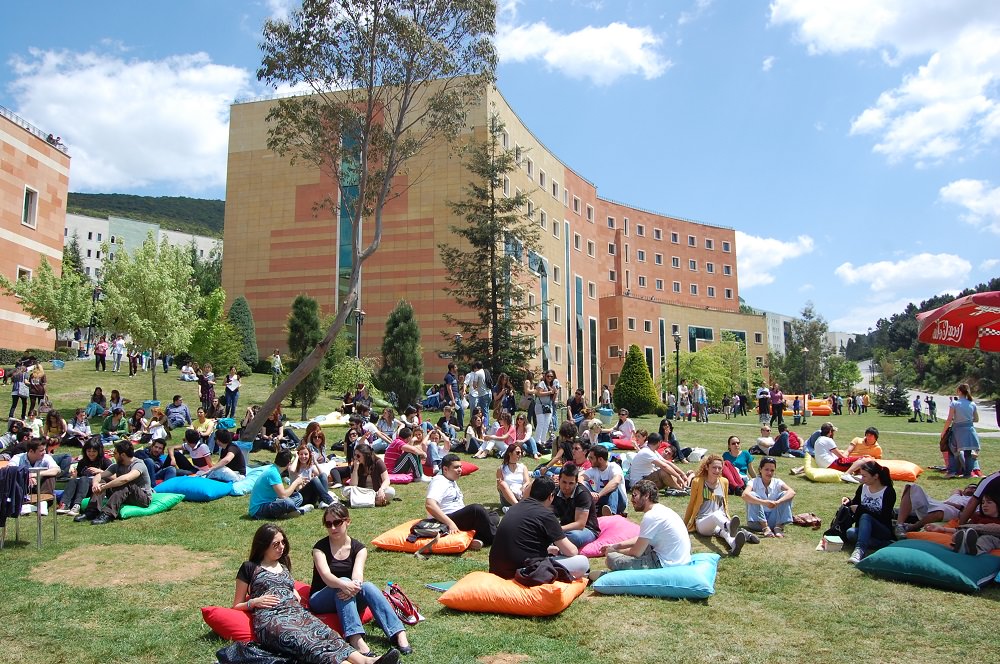Master's Program in Urban Design and Landscape Architecture
About
Urban Design and Landscape Architecture The Thesis and Non-Thesis Master's program aims to teach the students the urban theories, design techniques and processes that comprise the environment and sustainability, ecology, economic, political and socio-cultural factors shaping today's cities. In this context, in addition to the topics of history, legal structure and theory about the concept of dynamics shaping urban / urban areas at global and local scale, ecology and sustainability, urban design theories and practices, urban renewal and transformation areas, real estate financing, environmental politics, ecosystem and resource analysis, natural and cultural landscaping areas, plant identification and evaluation techniques, environmental psychology and conservation policies and applications of geographic information systems are included in our master's thesis and non-thesis program.

When we look at urban transformation applications that rapidly transform urban centers and urban areas after 2000 in our country, it is seen that all of these projects are realized through urban design projects. The most important concepts on the agenda of debate on urban development and urban transformation in Europe and America are topics such as environmental and social sustainability, urban durability, protection of social and cultural heritage and smart cities. In this context, it has become impossible to address urban transformation projects independently of social, cultural, environmental and ecological sustainability issues in the planning practice that shapes cities.
It is possible to evaluate the courses in a wide range of subjects in two main modules within the Thesis and Non-Thesis Master's programs. In the first module, topics related to the built environment such as urban renewal and transformation projects in urban areas, urban design guidelines, real estate valuation techniques, environmental policies and environmental law, urban durability, social sustainability, legal / managerial structure and implementation techniques are included. In the second module, natural systems and ecology-based themes such as ecosystem and resource analysis, ecology and sustainability, plant protection and evaluation techniques, natural and cultural landscapes are covered. These modules are designed to categorize the courses under two general themes, and students with thesis and without thesis can take the courses they want from both modules in accordance with their interests and study subjects.
COURSE'S CONTRIBUTION TO PROGRAM
- Having sufficient knowledge about the basic themes of Urban Design, Landscape Architecture and Planning.
- Having sufficient knowledge about creating natural environments without destroying the nature based on the principles of sustainability.
- Having knowledge about universal issues such as the social and physical dimension of urban design and inclusive design.
- Having knowledge about legal and administrative issues such as national / international environmental policies and legislation.
- Gaining knowledge about landscape inventory and analysis, natural and functional aspects of landscape, types of space usage and functions in different scales and contents.
- Having sufficient knowledge about urban design structural elements, construction methods and technologies, construction, cost analysis, documentation and technical specifications.
- Having sufficient knowledge about the historical development of Urban Design, Landscape Design and Planning.
- Having the ability to restore the environment that has been destroyed, identify natural conditions, and provide the same natural conditions in places newly designed.
- Having the ability use the modern design techniques to analyze the problems in the field of landscape architecture and find appropriate solutions for them.
- Having the ability to efficiently use information technologies and computer aided drawing, presentation, engineering and planning programs, as well as find and use current applications related to the field.
- Having the ability to search, reach and utilize databases and other resources to access information related to the field.
- Having the ability to reinvent oneself, follow improvements in the field of science and technology with the awareness of life-long learning.
- Having the ability to efficiently work individually or in a multi-disciplinary team and the self-confidence to take responsibility.
- Having an awareness about the universal and social effects of the solutions and practices found in the field as well as being knowledgeable about the problems of the times.
- Making decisions and acting with judicial awareness by showing respect to human, social and cultural rights, and by being sensitive to the protection of the natural environment and cultural heritage.
- Being aware of professional and ethical responsibilities.
Program Plan
BScientific Preparation
There is no Scientific Preparation in our program.
List of Required and Elective Courses

| AKTS | T | U | L | Kr | ||
|---|---|---|---|---|---|---|
| LAUD 501 | Urban Design Studio/Workshop | 10 | 2 | 2 | 3 | |
| XXX | Araştırma Metodolojisi ve Etik | 10 | 3 | |||
| LAUD XX1 | Elective V | 10 | 3 | |||
| LAUD XX2 | Elective V | 10 | 3 | |||
| LAUD XX3 | Elective V | 10 | 3 | |||
| LAUD XX4 | Elective V | 10 | 3 | |||
| LAUD XX5 | Elective V | 10 | 3 | |||
| LAUD 590 | Research Seminar | 2 | kredisiz | |||
| LAUD 600 | Thesis | 60 | kredisiz | |||
| Toplam | 132 | 21 | ||||
Application Requirements
Application Requirements For The Thesis and Without Thesis Program
- Graduates from the universities' department of Urban Design and Landscape Architecture, Landscape Architecture, Urban and Regional Planning, Architecture, Interior Architecture, Interior Architecture and Environmental Design can apply to this graduate program.
- Thesis program requires 55 or more points from ALES.
- ALES condition is not required in the master program without thesis.
- A score of at least 55 points in the central foreign language exams accepted by Higher Education Council (YÖK) other than the mother tongue of the student in the thesis program, or a score equivalent to that of international foreign language exams which are accepted as equivalent by the Student Assessment and Placement Center (ÖSYM) or Yeditepe University English It must be successful from the Proficiency Exam.
- Foreign language proficiency is not required for graduate students of Yeditepe University in thesis program.
- Candidates must be successful at the interview of the program they are applying for.
- Two reference letters
- Portfolio
